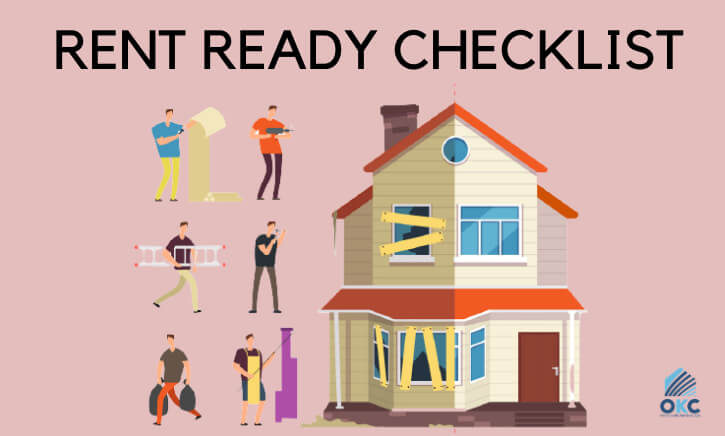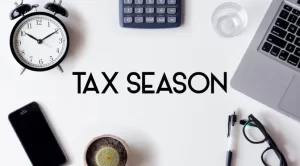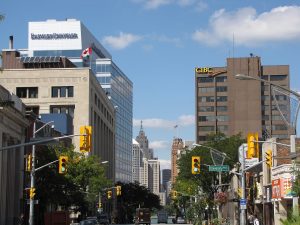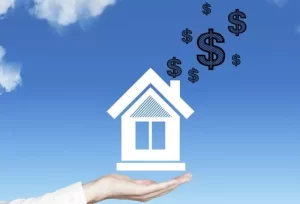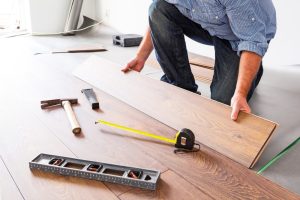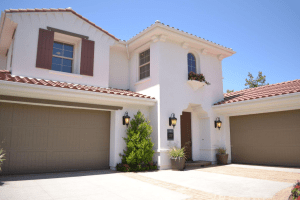Choosing to become a landlord is a big decision. Whether you are buying a new rental building or converting an existing family home into a rental unit/s, there are several things to do to get your property rental ready.
A 2018 survey conducted by the Canadian Imperial Bank of Commerce (CIBC) found that around 26% of homeowners were landlords.[1] Those households that did own separate rental investments often earned more than 50% above their property’s monthly expenses.[1] As of 2023, a more recent source has both landlord ownership and rental profits on the rise.[2]
Why Being Rental-Ready is Important
Being a landlord can be a smart financial decision, however the choice still requires a lot of preparation. You’re required to make sure your property is sufficiently livable of course, but there are other items to consider too, if you’re to optimizing the return on your investment.
Getting your property ready for new tenants can be a challenging task, especially if it’s a new property you have never lived in. Nevertheless, the Residential Tenancies Act requires that you create both a livable and habitable space for your tenants. It’s equally important to crunch the numbers and set up the right rental processes ahead of time, before renters take occupancy.
Assessing the Property’s Condition
The first thing you should do to prepare your property is take inventory of any repairs and deferred maintenance that have yet to be remedied. The law requires landlords to repair and maintain their property to comply with health and safety standards. Here are the top issues to watch out for.
Another reason you would want to address these issues is because it could impede your ability to market your property to potential renters. It can also help you to have a record in the event you don’t remedy certain repairs and your new tenant tries to claim damage they caused as a pre-existing issue.
Deciding How to Resolve Pre-Existing Issues
Once you have a list of work that needs to be completed, your next big decision is deciding whether it’s more effective to patch and band-aid any immediate issues or take an approach of renovating key features to be more sustainable and enjoyable.
Repair vs. Renovation
The benefits to completing simple repairs is that the upfront cost is often less than completing a large-scale renovation project. However, over time, repairs might not always hold up which could cost you more money down the road.
Alternatively, renovating your property is much more capital intensive, but can have much better long-term payoffs if you prioritise the most profitable upgrades and renovations. One example to consider is how the new improvements should increase your property’s value. Newer features can also withstand more wear-and-tear, which could lower your overall upkeep costs.
When Renovation is a Must
In some cases, renovating may be the only way to go. For example, if your property has fallen into distress that has several code violations, while you might not have given those items a second thought during your occupancy, your tenants will.
Since property owners must meet health and safety requirements, to rent your home could mean investing thousands of dollars in updates and to make sure everything meets local and provincial requirements.
Tenant Comfort and Enjoyment
You also want to make sure your tenants are comfortable, to the point where they enjoy the space and want to continue to rent from you. In fact, having newer, higher-end amenities and features could open your property to a broader pool of renters.
Thus, it’s always important to consider the renter’s enjoyment when deciding between repairs and renovations.
Making a Profit from Your Rental Property
The process of ensuring you profit from your investment starts at the very beginning, long before your first tenant sets foot on the property.
Crunch the Numbers
Before you commit renting your home to new tenants, it’s imperative you research the market to determine a balanced value for your rental property and run through the numbers to make sure you will be generating enough income to cover all your operating expenses (and then some).
Things to consider include how much you will charge for rent, the lease structure, and other inclusions and exclusions. It’s also important to consider new or existing financing costs. Make sure to also factor average rental maintenance costs and potential vacancies into your calculations.
Focus on Higher Returns
In some cases, you might even want to weigh the benefits converting your house into a duplex or three-unit property to maximize its cash flow potential. Here is where crunching the numbers really becomes important.
For example, converting a property from a house to a duplex could cost you between $80,000-100,000. Other than the actual renovation work, other costs include fees, inspections, and permits to ensure the property is converted in a legally permissible manner and is up to code.
While converting your home to a multi-family property can cost a pretty penny, eventually you may find it will net you a higher return on your investment.
Establishing Good Rental Practices
Getting your home rental ready means having the right rental practices in place before you start marketing your property to prospective tenants.
Develop a Solid Strategy to Succeed
It’s best to develop a standardized set of practices for marketing your properties and managing them effectively.
At minimum, you should plan for:
- Marketing Your Rental: How will you describe it? Where will you list it for rent?
- Tenant Screening: How will you screen tenants? What questions will you ask them?
- Rent Collection: How will you collect? What will you do if a tenant doesn’t pay on time?
- Maintenance Issues: How will you respond? Who will you call for specific issues?
It’s also important to have the right insurance in place to reduce liability risk.
Know When to Seek Professional Assistance
If you don’t have the time or energy to implement solid rental practices for your home rental, delegating property management tasks to a professional might be more cost effective and save you a lot of headaches.
For years, Marda Management has helped thousands of investors manage their home rentals. Whether your property is large or small, Marda Management can help alleviate some of the work in getting your home rental ready.
Conclusion
Being rental-ready is a multifaceted process that encompasses legal compliance, strategic decision-making, financial acumen, and effective rental practices. Whether navigating the journey independently or seeking professional support, a well-prepared property sets the stage for a rewarding and successful landlord experience.
Sources
- Insurance Portal (2018, May 22) More than one quarter of Canadian homeowners are landlords. (retrieved April 1, 2022)
- Statistics Canada (2022, November 2) A portrait of landlords and their rental income: A tax data perspective (retrieved January 26, 2024)
